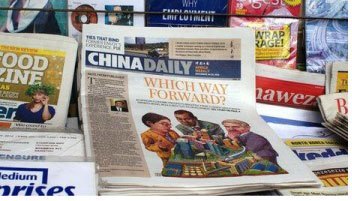
While as a human rights activist of more than five years now I could not agree more with the wise statement that human beings are inherently political animals, I think as Zimbabweans, there is more politics in us than anything else, which shows why we are an unbalanced society.
Report by Vivid Gwede
It seems as if we don’t have other lives where we indulge in other things which are completely different, like loving our spouses, or going to church to confess how our human lot has failed to rise above sin in our daily lives.
The public is not allowed media platforms to discuss mundane and recurrent human issues — such as when a pastor fancies a married mother of three who is God-fearing. We need to profoundly talk about the drought which has become a permanent feature of our food insecurities. Even the discussion about same-sex indulgences is equally important without the politics — but everything politics touches goes to waste.
We go about as if there is no one actually riding a shaky and squeaky bicycle carrying an ill family member to a distant rural clinic under the unforgiving sun above him. Such stories, which can be captured by a community radio and radically change the lives of many by showing the urgency, seem to go unnoticed.
Our major problem is that we are now obsessed with politics to the point of being fanatics who think inside that always self indulgent, non-objective, non-rational and unpopular political box. Who does not know that politics has the highest concentration of haters and liars per congregation?
So why can’t we forsake it at times in discussions which do not require it and which would otherwise be interesting without that monstrosity?
It was really unsettling when I recently attended a public discussion on the need for press freedom. For me, people who talked sense and sounded educated said we needed media houses and broadcast entities to proliferate in Zimbabwe. Political fairness and plurality in media coverage mean more or less the same.
- Chamisa under fire over US$120K donation
- Mavhunga puts DeMbare into Chibuku quarterfinals
- Pension funds bet on Cabora Bassa oilfields
- Councils defy govt fire tender directive
Keep Reading
It is unbelievable that the whole media discussion has been reduced to a political tussle as narrow as whether party A should open the media space to party B.
Clearly, why should party A think it has all the power to adjudicate on the reasons and rights of those people who want to hear out party B? Is that the reason the media has degenerated to be about politics and nothing else?
We know some forlorn and heart broken dude wants to talk about love on radio. I think I need a radio show to talk about why I am a politician who is anti-politics. That could be a more interesting and brain-teasing discussion than the consistent and dreary discussion about political thuggery—whether ideologically justified or not — guns and blood during the liberation struggle which came to pass three decades ago.
Someone might want to listen to Mbakumba and Muchongoyo on a community radio in the heart of a rural area. They do not always think national. The question of whether it is their right or not, to think and live communal rather than national is irrelevant.
Why should media broadcasts be all about ZBC’s obsession with the Harare’s political mazes where they ludicrously think that Zanu PF is the centre of ideology?
The only real merits of the media discussion will be seen in its rational context. We need the discussion to be national in scope.
Politicians have become self-indulgent, they want to protect their interests at the expense of the majority.
They believe every man and woman is obsessed with politics in the same way they are, yet people have other urgent needs to take care of. They think every one’s life should revolve around their politics-inclined minds. They do not see the common man for whom politics is just part and not the entirety of every day life.
Politicians do not seem to want to engage the electorate, to hear their views and to work on policies that are for the people. Media reforms should not be about politicians, but about the people and their right to access information.
Life is all about choices and that is what press freedom should be about. What the politicians signed in the Global Political Agreement is just their understanding of why they need press freedom. There are other groups whose needs are still to be catered for.
Press freedom and the licensing of community radio stations should not be tied to the inefficient wheels of politics. Politics is self-serving, but there are voices waiting to be heard and subjects still to be tackled when access to media is availed.











